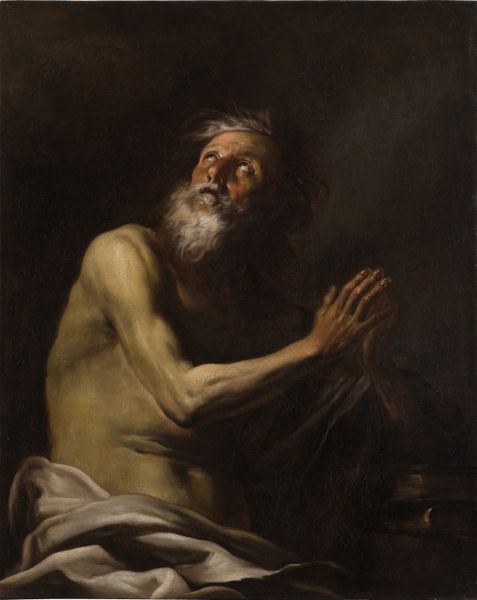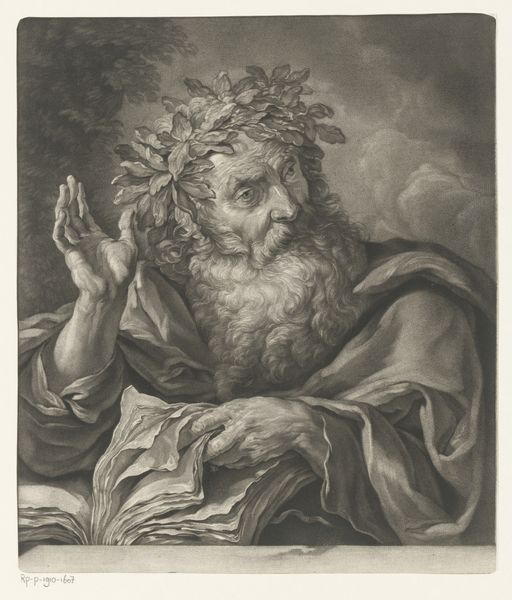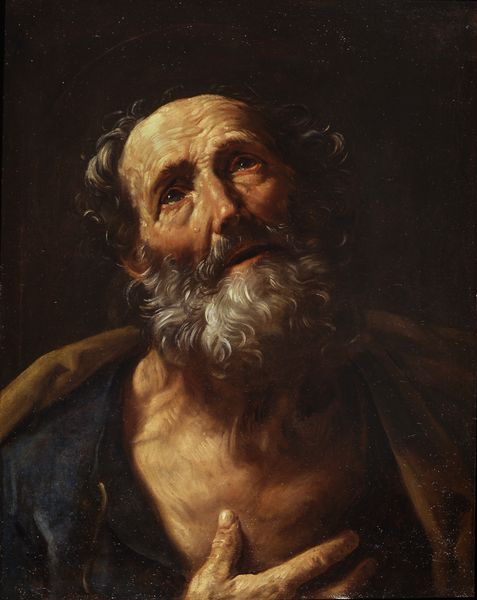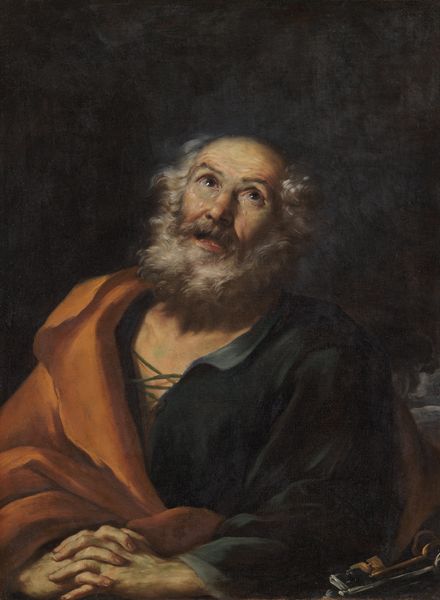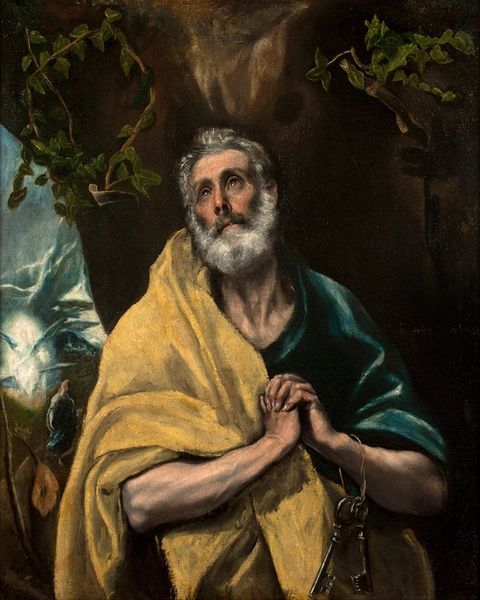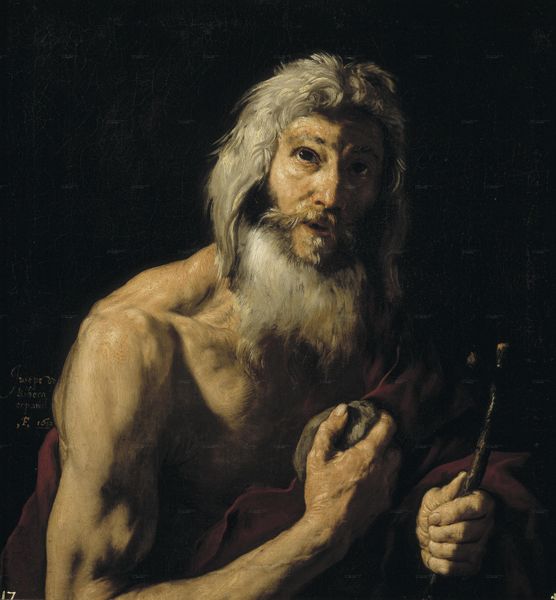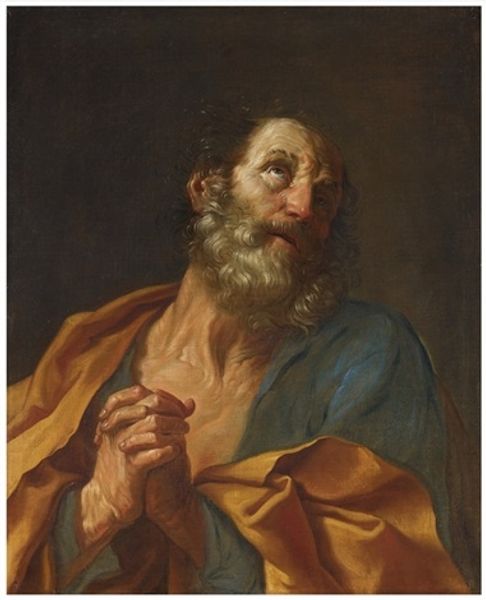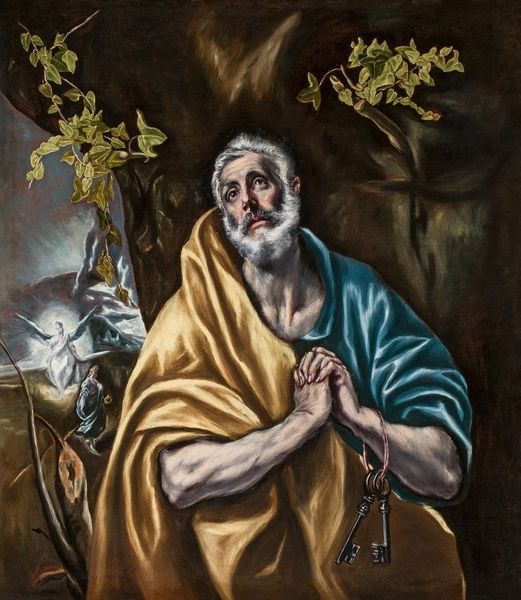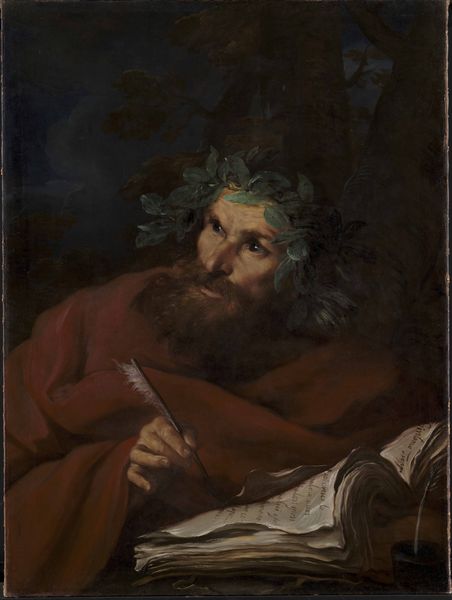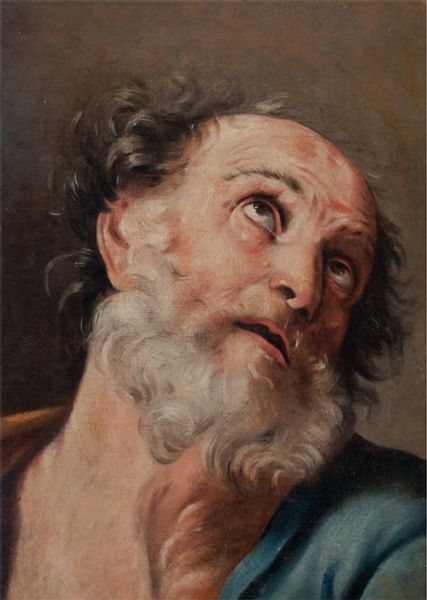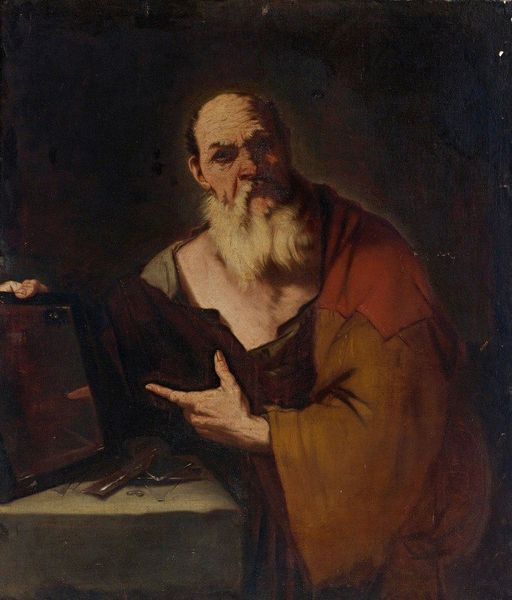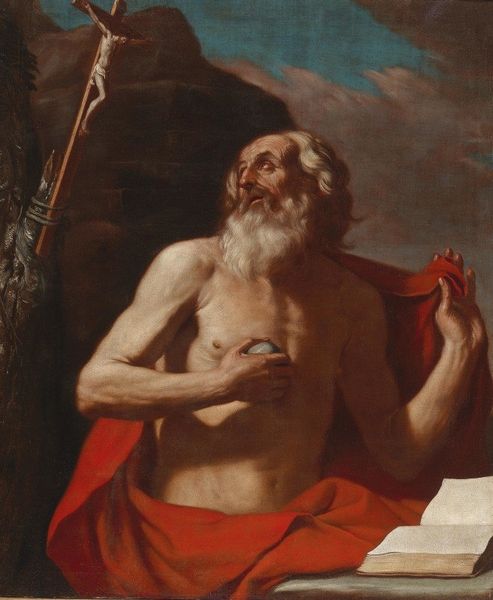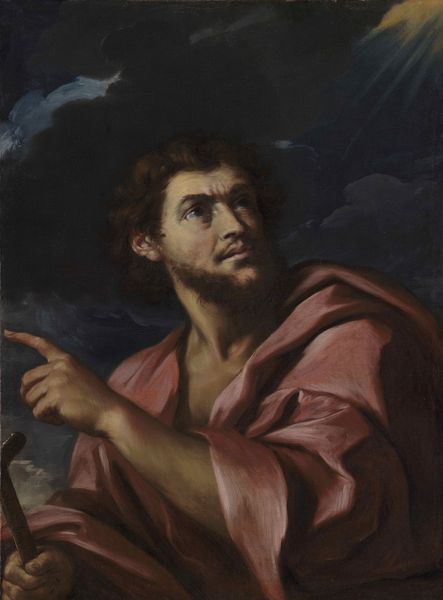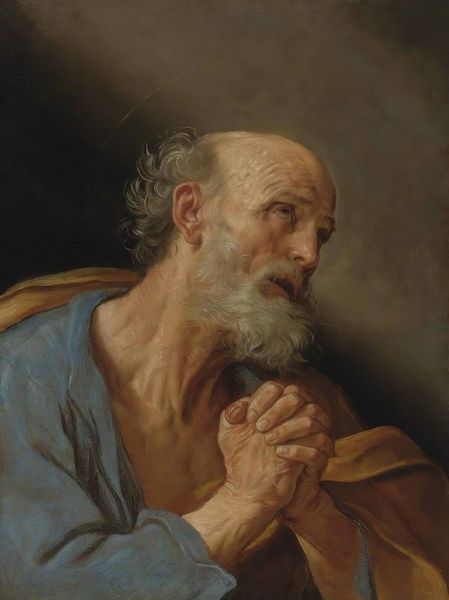
painting, oil-paint
#
portrait
#
narrative-art
#
baroque
#
painting
#
oil-paint
#
figuration
#
history-painting
#
academic-art
Dimensions: 98 cm (height) x 72 cm (width) (Netto)
Curator: Girolamo Troppa's "Homer," created sometime between 1665 and 1668, invites us into the shadowy world of the legendary poet. It now resides here at the SMK, Statens Museum for Kunst. Editor: He seems caught mid-sentence! The lighting makes him appear thoughtful, illuminated by the fire of his own words maybe? It's dramatic. I almost hear him reciting those famous lines. Curator: Indeed. In Troppa's era, depicting historical figures wasn’t just about visual accuracy; it was about capturing their essence and legacy, presenting them as exemplars of virtue. Homer, the celebrated poet, was one such figure. Editor: That laurel wreath! So self-important and comical. Does it make me a philistine if it also looks like he is wearing a pizza topping crown? I feel bad for the old fella... Curator: (Laughs) Well, it represents poetic glory, of course. Beyond the theatrics, think about how Troppa navigated the prevailing tastes. There's a demand to represent greatness, combined with expectations on visual and intellectual consumption in that era. Editor: Ah, the burden of the "great man". The light and shadow – Caravaggesque, almost – really throws his wrinkles and age into stark relief. This artist almost forces us to ponder on our mortality... What are we writing? Will we be laurelled with basil, as it may be...or remain in darkness? Curator: It highlights how artistic choices both create and reinforce cultural narratives. "Homer" exemplifies the artistic and intellectual currents of 17th-century Europe and demonstrates that we’re continually reimagining and reinterpreting history. Editor: It's quite touching and very human, actually, isn't it? Seeing the poet this way reminds me we’re all storytellers at heart. I wonder what epics our lives will amount to? Curator: Ultimately, "Homer" prompts questions about memory, history, and how society constructs its heroes, and about the place of the institutions showcasing these heroes today.
Comments
Join the conversation
Join millions of artists and users on Artera today and experience the ultimate creative platform.
statensmuseumforkunst about 2 years ago
⋮
Ever since antiquity, Homer has been regarded as the author of the two epic poems the Iliad and the Odyssey, the first of their kind in European literature. Troppa has painted the fabled Greek poet looking into the darkness with his famously blind eyes, their corneas dull and milky white. Struck by divine inspiration Homer raises up his right hand while his left hand maintains order in the pages of the book he has before him. The book is opened on a page where Troppa’s signature can be read upside-down, pretending to be part of the book’s contents. Homer wears a laurel wreath, as does Virgil. The laurels of glory, honour and eternal fame. In his portrayal of the two poets, Troppa appears to have observed a commonplace iconography for depictions of poet-philosophers; an iconography whose written basis may be Horace’s statements about the appearance of genius. In Ars Poetica Horace states with thinly veiled satire: ‘Because Democritus thinks natural talent (ingenium) is a greater blessing than wretched art and bans sane poets from Helicon, a good many don’t bother to cut their nails or beards, but seek solitary places and avoid baths’.
